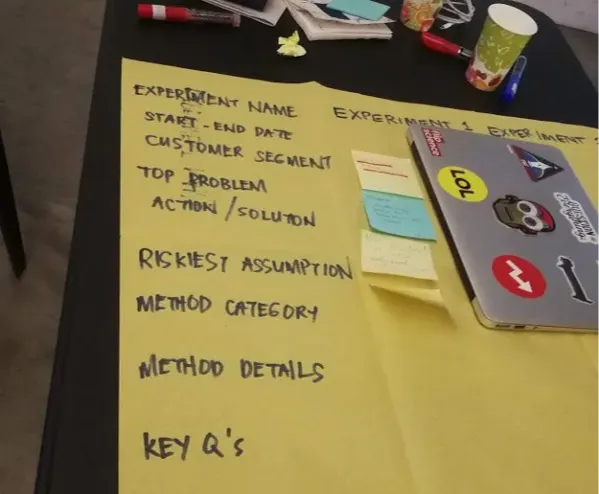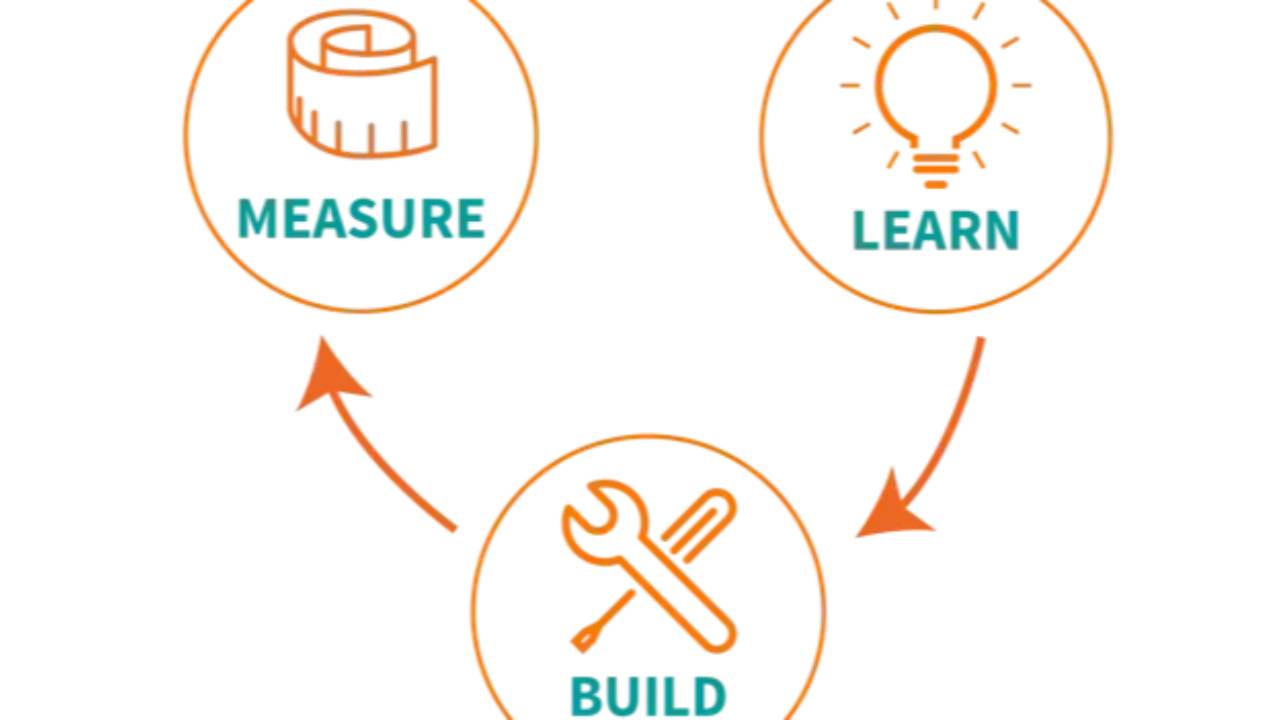Failing Hurts. Do it anyway. Quickly. Here’s How to

This is the second in a series of articles documenting my journey of finding our way out of the current crisis and into finding a sustainable and potentially scalable business.
To read the first article, check it out here
Failure is part of the Process
Failure hurts no matter how used you are to it. No matter how small, you’ll feel some pain for sure. What’s not sure is if you’re going to learn and move forward from it. So this article hopefully helps you make sure that as you fail, you constantly move forward.
Accept the Inevitable
Accept that you will have some form of failure in this startup or innovative adventure of yours. Not the kind of ultimate failure that will doom your project and make you question the choices you’ve made in your life — just the ones that stings your pride a bit and makes you learn a whole bunch.
So if you’ve now accepted that such an event is inevitable, then avoiding it will be futile. The better course of action is to manage it. How do you best manage failure? You need to let the failure happen right away.
If you’re not prepared to be wrong, you’ll never come up with anything original. — Sir Ken Robinson

How to Fail Fast and How I Did It
Here are my recommendations which are based on what I teach my workshop participants.
STEP 1: Make a guess, an assumption, a hypothesis (they all mean the same thing) that is key to your startup or innovative idea
In my case, my assumption was
SME Business Owners recognize the need to rapidly adapt to the “new normal” but are unsure or do not know how to get started and do it.
STEP 2: Design or BUILD an experiment to test said assumption — via interviews, pitching, delivering the service manually or a combination of these.
in my case, I decided to interview SME owners within my network and understand how they’ve adapted to the lockdown.
STEP 3: Run the experiment for a few days or a week and MEASURE the results.
In my case, I conducted 4 interviews within 2 days. They were
SME Owner #1
Logistics company, Production, Consulting (shutdown)
— Does not see the urgent need to adapt
SME Owner #2
Industrial equipment (shutdown)
SME Owner #3
Commercial space (shutdown but 80% of rent was paid)
Coffee shop within the commercial space (shut down)
SME Owner #4
Software development — those w/o projects on forced leave
Laundry shop is shut down
SME Owner #1, 2 and 3 are not able to adapt because they are shut down.
STEP 4: At the end of the week, get together as a group and ANALYZE the result and discuss the insights. Accept that you’ve failed and congratulate yourself. If your results prove your assumption to be true — check your bias.
Here are my key findings
0 of 4 see the need to rapidly adapt.
#1, #2 and #3 are currently shutdown
#4 (software dev) was already WFH-able before lockdown
#3 and #4 (laundry and cafe) are considering re opening but not urgently and know how to move forward.
Nobody wants to learn a new skill.
STEP 5: Make more educated guesses(s) based on what you learned in the recently concluded experiment.
Get Carlo P Valencia’s stories in your inbox
Based on the insights above, here are the assumptions we have and how to test it
Assumption A:
Companies that provide Digital Transformation services need help due to the increase in demand for their services.
How to Test Assumption A:
Book company owners for interviews and understand their needs with a little pitching
Assumption B
Business owners are looking for solutions already.
Micro business owners are looking for ecommerce solutions
Corporate Innovators (in large organizations) are looking for automation solutions
Some business owners are willing to sponsor webinars to generate leads
There are other business owners who recognize the need but are unsure of how to adopt.
How to Test Assumption B
Run free webinars create content around the topics of adapting to this crisis, going digital and automating processes. Offer sponsorship packages to those within my network
Partner with solution providers and offer sponsorships and referral / reseller partnerships
Target promotion to these people then interview and analyze the attendees.
Assumption C
There are more new and aspiring founders now as a result of the current crisis.
How to Test Assumption C
Run Idea Validation webinars, targeting the Startup PH, Creative and Techie Communities — do it for free then upsell to paid remote workshops.
Interviews Are A Great Place to Learn
So I went and made a hypothesis. My first assumption is that business owners recognize an urgent need to adapt to the new normal and that they don’t know how to.
I went and scheduled people for interviews and actually ran them and took notes. Just like how I teach it in our workshops,
I asked them open ended questions and made sure I don’t lead them into the answer I’m hoping for. I stayed away from questions and statements like “Aren’t all business owners like you….”, “Aren’t we all…”, “Aren’t you afraid of…”, “Don’t you hate it when…”
I also focused my questions on the actions that they’ve taken and not what they “think” they should do. This is because historical action is the best way to predict future action. The worst question you can ask in these kinds of interview is “what do you think about…”, what if I told you that there was a solution…”, “would you be willing to try…” Almost everyone you ask that way will give you a yes not because they agree with you.
They will say yes because most people don’t want to hurt your feelings. That’s called a false positive.
It felt great, doing the things that I teach other people. It felt that I was learning so much even though I’ve done it so many times before with and for clients.
I went and it felt good as I was doing the interviews. I was uncovering so much from them.
Failure Sucks
Then by the 3rd interview, it dawned on me that my assumption had gotten totally invalidated. I didn’t feel so good anymore.
I started feeling like a failure. Not the good kind of failure. The kind of failure where I start “questioning my life choices” kind of failure. Perhaps I’m off to a fool’s errand, perhaps this is all for naught. Maybe it was a good idea but i’m just not doing itt right. Or maybe I’m just not hearing what’s being said?
But the Learning is Invaluable
Soon after my denial, anger, bargaining and depression, I was fortunately able to quickly move to acceptance and come up with the insights which I am now sharing with you.
Now I know who doesn’t need my help. Now we now know who not to sell too. That’s okay. Let’s move on. Let’s find those people that do need our help.
I would have ultimately failed had I not pursued this group of people.
Doing these interviews already gave me other ideas. Hearing first hand the thoughts of these business owners are much more insightful than assumptions made by everyone else was refreshing. Most importantly, it gave me what I needed to write this article.
The Next Experiment(s)
I’m currently running Assumption A (DX companies need help due to bigger demand) and will be running a workshop by next Friday (April 16) to validate Assumption B (Companies are looking for solutions)
Unsure yet of when — or if — I should be testing Assumption C. For the purpose of focus, I might do that for the webinar on the 23rd (I’m planning to run webinars every Friday)
Tell me How I Can Help
The reason I’m writing these articles is to help people like myself that are going through a crisis. To hopefully educate and inspire you, the reader. So if you’re like me, let me know and I would love to have that conversation with you.
If you have any questions, thoughts on how to make this article better, or anything specific you want me to talk about, let me know in the comments or email me at [email protected].
Would love to hear from you.
. . .
Originally published at https://startupphtraining.com.

